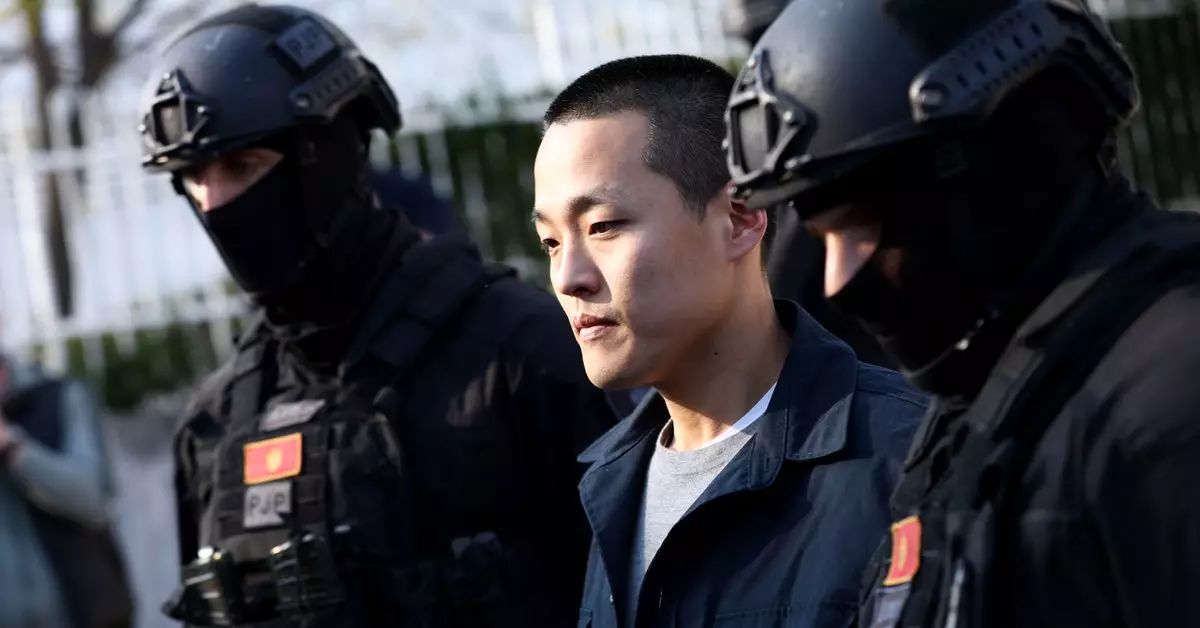The cryptocurrency landscape has seen its fair share of dramatic highs and lows, but few incidents have been as impactful as the collapse of Terraform Labs in 2022. At the center of this storm was Do Kwon, the co-founder whose ambitious vision for the TerraUSD stablecoin met a catastrophic end, resulting in a staggering loss of $40 billion for investors. This debacle illuminated the inherent risks within the crypto market, highlighting the need for stronger regulatory oversight and accountability.
In a development that could have significant repercussions, Kwon is set to be extradited to the United States from Montenegro, where he was arrested over a year ago. This decision, announced by the Montenegro Ministry of Justice, signals a pivotal moment in the ongoing saga of Kwon and the collapse of TerraUSD and its accompanying token, Luna.
Kwon faces a multitude of charges across both the United States and South Korea, with federal prosecutors in New York leveling serious accusations including wire fraud, commodities fraud, securities fraud, and conspiracy to defraud. The complexity of these charges reflects the multifaceted nature of cryptocurrency operations, making it imperative for the legal system to adapt to the evolving landscape of digital finance.
Interestingly, Montenegro’s decision to extradite Kwon to the US has been met with uncertainty. Just a few months prior, Montenegro ruled to extradite him to South Korea, a move that calls into question the finality of the recent decision. Legal analysts suggest that this situation may set a precedent for how international law interacts with the burgeoning field of cryptocurrency. The interplay between different jurisdictions could complicate efforts to hold Kwon accountable and serve as a cautionary tale for regulators globally.
For investors, the fallout from Kwon’s actions has been severe. The collapse of TerraUSD not only resulted in financial losses but also eroded trust in the cryptocurrency market. As Kwon’s extradition looms, many are left wondering what the implications will be for future investments and regulatory policies in the crypto space. Will this marking of accountability usher in a new era of stricter regulations, or will it instill an even deeper sense of fear among potential investors?
Furthermore, the case highlights the complex challenge of establishing a regulatory framework in a rapidly evolving market. Should the legal system intensify its scrutiny on cryptocurrency operations, it may inadvertently stifle innovation in the sector, which thrives on freedom and decentralized control. Thus, policymakers will need to strike a balance between fostering growth and ensuring the protection of investors.
The extradition of Do Kwon represents a crucial chapter in the narrative of cryptocurrency regulation and accountability. As legal proceedings unfold, the implications for investors, the future of digital currencies, and the regulatory landscape are yet to be fully understood. However, what is clear is that the events surrounding Terraform Labs have underscored the importance of regulatory oversight in safeguarding investor interests and maintaining the integrity of the financial markets. The journey ahead may be complex, but it is unavoidable.

